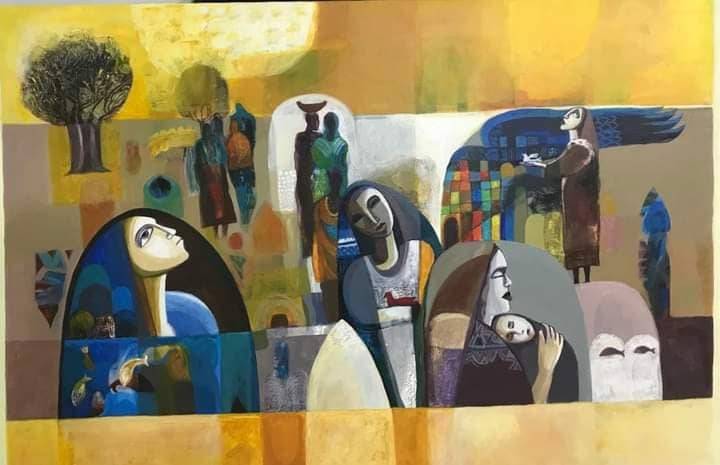
The outbreak of the December 2018 revolution in Sudan has propelled artistic, musical, and visual practices to the forefront of the public action scene. This is due to the significant role that the arts played in promoting the mass movement as a tool of peaceful resistance. In this roundtable discussion, Sudanese artists and curators will reflect on the role of arts in the revolution and its aftermath, as well as the impact of the revolution on the art's scene in Sudan.
The conversation will be moderated by PRIO researcher Katarzyna Grabska and researcher Azza Aziz A. Ahmed and will take place in English. The event will end with a concert.
This seminar is co-hosted by CEDEJ, the French Research Centre in Khartoum and it will take place there but can be followed online through Microsoft Teams. Click here to join the meeting. For those physically in Khartoum, CEDEJ is pleased to invite you to celebrate iftar at 17:30 before the start of the event.
Speakers:
Abdelmagid Afifi involved in the painting of murals during the civilian upraising against the Islamist regime in 2019. His style of painting is innovative and ever changing, he believes that artists have to keep researching and experimenting.
Reem AlJeally is an architect turned visual artist and aspiring curator with a great passion for channelling her talents towards addressing social issues and challenging social change. She established The Muse multi studios in 2019 and founded Bait Alnisa in 2020 to promote and curate Sudanese female art.
Isam A. Hafiez is a visual artist and photographer whose work spans the different waves that Sudanese art has traversed ranging from being a tool of resistance to a powerful aesthetic that reflects realities of multiple worlds.
Moderators:
Katarzyna (Kasia) Grabska is a Feminist Anthropologist, a Senior Researcher at the Peace Research Institute Oslo (PRIO) as well as a visiting professor at the Ethnology Institute at the University of Neuchâtel in Switzerland. Her research has focused extensively on the themes of gender, generation, youth, displacement, refugees, return, identities, and access to rights for refugees in urban settings. Her current research focuses on artistic socially engaged practices in conflict and exile settings and involves collaborations with artists.
Azza Ahmed A. Aziz is a social and medical anthropologist her work has focused extensively on the interfaces between identity formations in contexts of forced migration and situations of vulnerability and unwellnes as well as bodily expressions of these experiences. Her recent work has explored gendered expressions surrounding the Sudanese revolution.
The INSPIRE seminar series is a monthly online space where we explore arts-based methods, collaborative methods, ethics of doing research with artists, art as transformation and engaged scholarship - all in the context of violent conflict and war - with invited researchers and artists. The seminars are open to all interested in these topics. To discover more about the INSPIRE research project, visit the INSPIRE website.





